Toxic aftermath: How drug cooks are destroying the environment
Half a world away from Australia’s party pill scene, Dutch park ranger Erik de Jonge is fighting his own battle – the environmental damage caused by toxic waste dumped by drug manufacturers in his forest. He took The Ripple Effect on a tour.
Young Australians who take illicit party drugs only to then fill city streets to protest climate change are oblivious to damage the tonnes of toxic chemical waste — left by lawless drug cooks — is doing to the environment, an exasperated park ranger has declared.
The Ripple Effect toured bushland in the pleasant southern Dutch province of Brabant, about 100km southeast of Rotterdam, that is a toxic dumping ground for hundreds of criminal drug cooks churning out millions of pills in The Netherlands.
Thousands of pills cooked there are smuggled from the Port of Rotterdam to Australia and into the hands of young adults at music festivals at an extraordinary 10,000 per cent mark-up.
For every litre of MDMA cooked in a lab, 20 litres of waste product, often including potent substances such as hydrochloric and formic acid are dumped, Dutch authorities say.
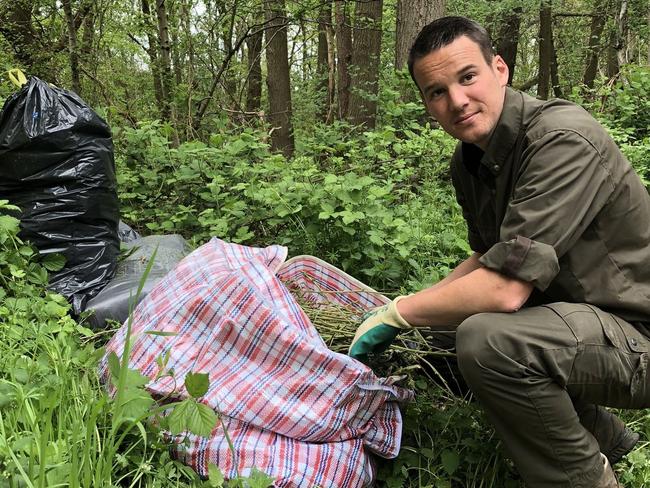
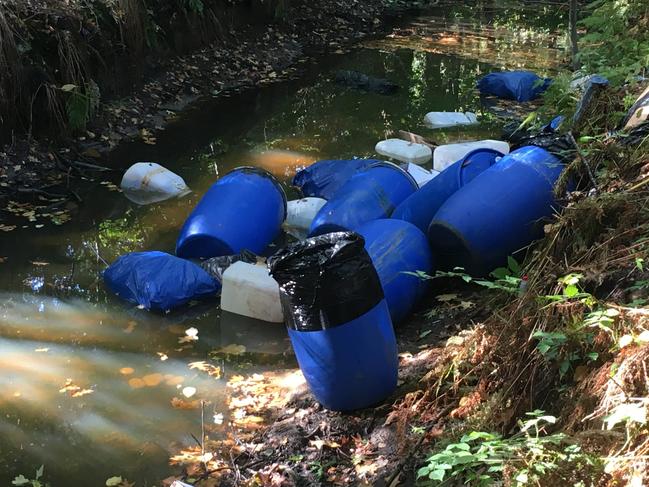
Brabant forest ranger Erik de Jonge points a stern finger at young party people who express concern about climate change and the environment but support the lawless and toxic drug economy by swallowing ecstasy or MDMA at dance festivals or nightclubs.
“The trees, the plants are going dead,” Mr de Jonge said.
“I know there are a lot of people, young people, who are intelligent and not eating too much meat or no meat but when they have a party, they use pills and they don’t know what the impact on nature is.
“I have a lot of friends and I see a lot of young people and they are really taking care about the climate and nature and then they’re going home and having a party and using pills [but] they don’t make the [connection].
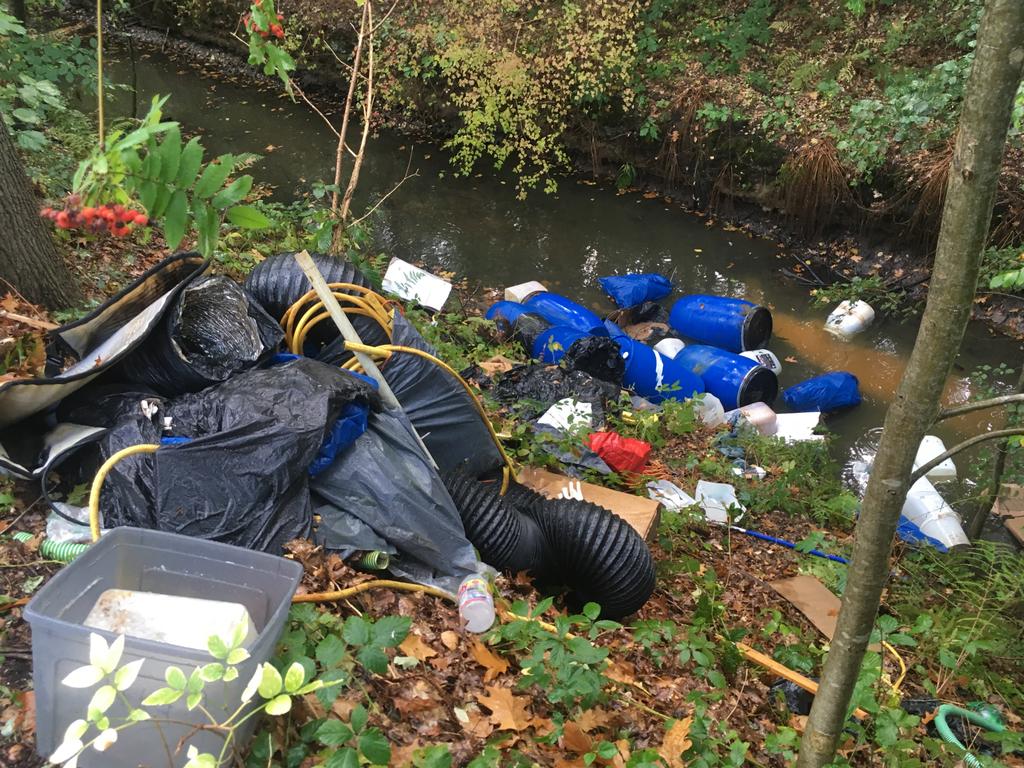
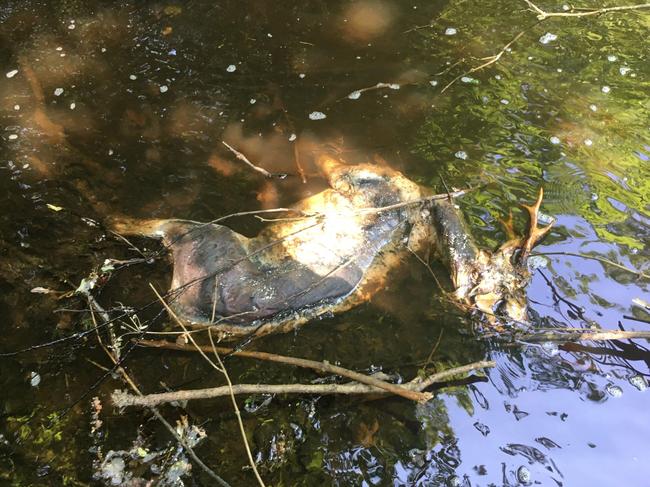
“People who are using the stuff of those guys have to realise that the people behind the production of these pills are so bad they’re making the nature here so bad.
“The pills made here are going around the world [and] they're making so much money from that … I see the damage of that in my nature reserve.
“Because they are making so much money from it, it looks like nothing can stop them. That’s the reason why it’s important that we have to tell the story of the damage of MDMA in nature.
“I don’t want to say ‘if you use pills you are a criminal’ but you have to know there is a very black side to the production of the pills because the criminals do not care about the environmental damage.”
Creeks are running black with noxious waste chemicals, piles of garbage bags line the roads and the bush is littered with discarded blue plastic jerry cans.

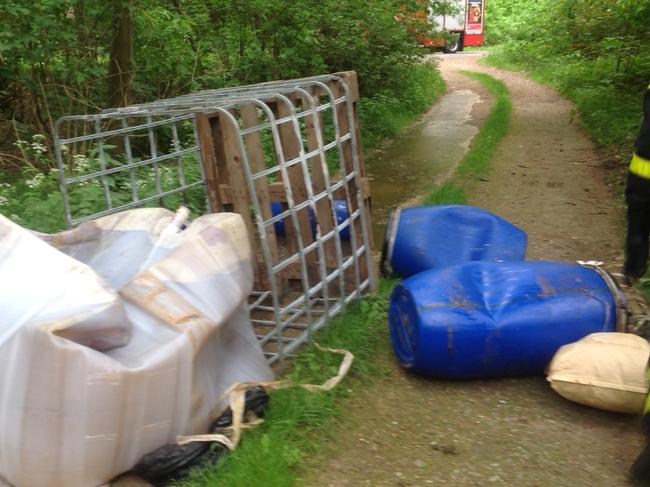
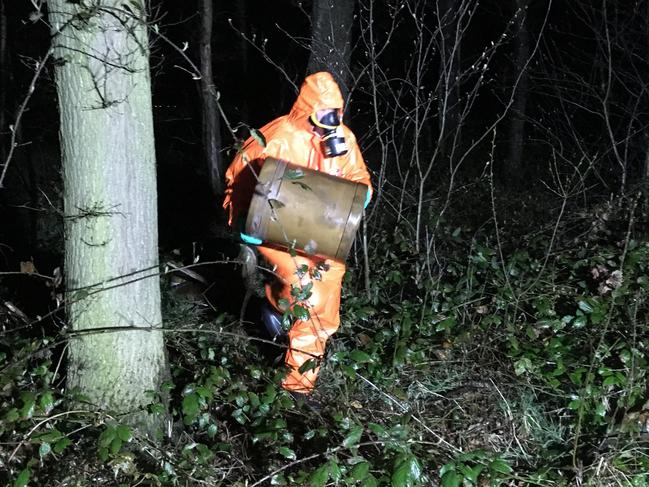
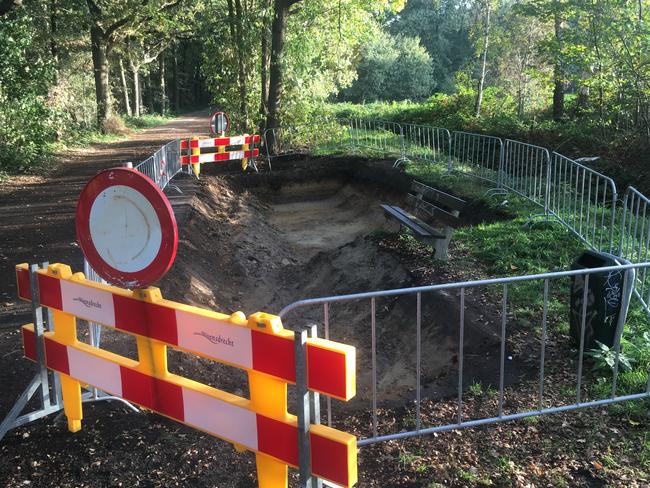
Dozens of photographs obtained by The Ripple Effect reveal the reckless destruction caused by the illegal dumping of chemical waste and equipment from the manufacturing of illicit drugs in the forest.
The pictures reveal discarded ventilation ducts, scores of hazardous plastic containers strewn across country roads, or thrown into waterways, contaminated streams, discarded firearms, bags of rubbish that have been clearly pushed out of a moving vehicle and onto the siding.
They also show the complex clean-up operations required by Dutch authorities to ensure the forest is safe for the general public.
The economic cost is significant — of the about 290 contaminated sites in Brabant each year, all have to be cleared at a cost of up to $130,000.
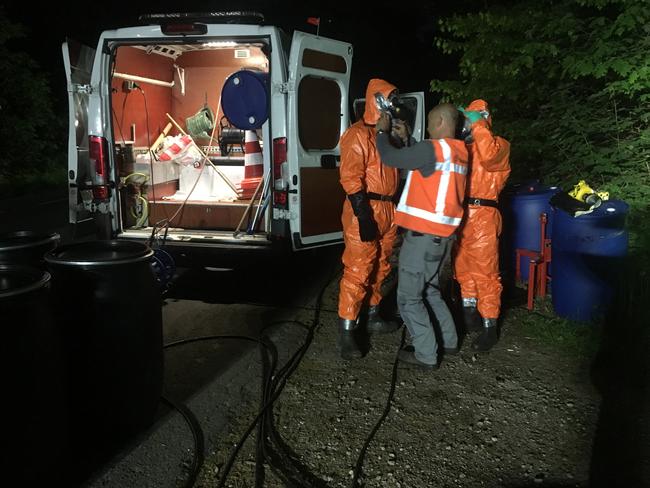
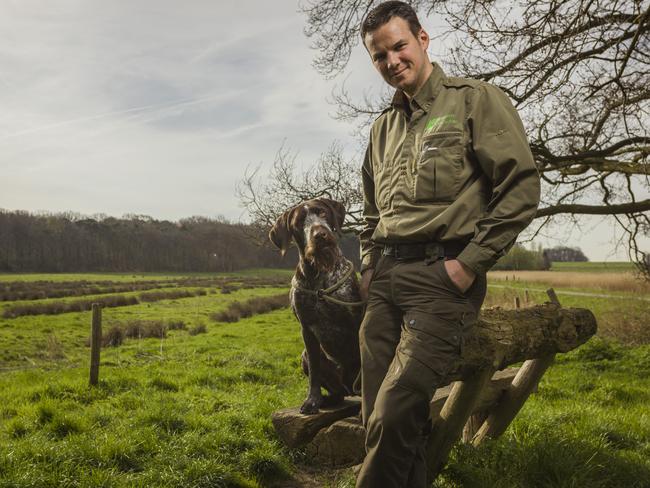
“It’s like a bomb … all the fish are dead, it’s in the bottom (of the water) so we have to clean up under the water,” Mr de Jonge added.
The Ripple Effect showed the forest destruction to young Australians who said they were oblivious to the environment destruction overseas.
“Considering I care about the environment and all of that I’m actually a little bit ashamed that I didn’t think of that aspect of the drug trade,” one young woman said.
“I didn’t know how they made MDMA to be honest.”
Another young woman added: “If people were being showed this type of footage I think that would have more of a sway than, ‘just say no to drugs’ campaigns.”

